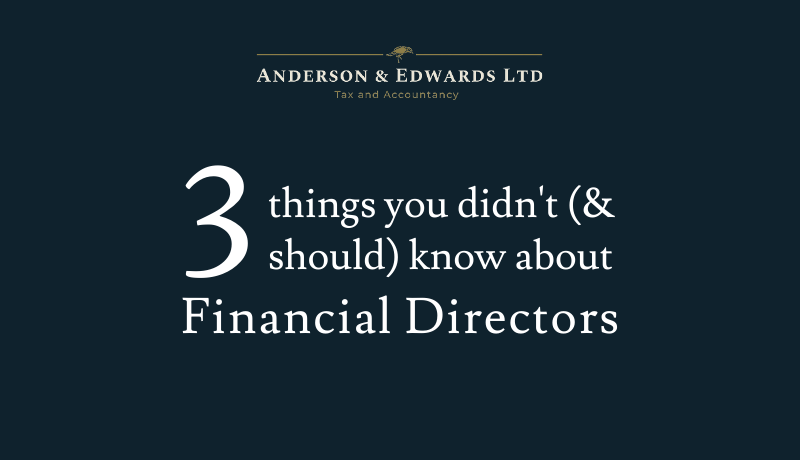
What do Financial Directors (FDs) really do? And what does the role of a financial director usually entail? It may vary from company to company, however even as an outsourced financial director for our clients, there are certain tasks and responsibilities that people often overlook. If you want to know whether you should hire or outsource a Financial Director, perhaps these three things will help. After all, every company requires them at some point or another.
Imagine planning a route to a new destination with no directions. The chances are unless you know where you’re going, you’ll get lost unexpectedly. The same theory applies when trying to grow your company financially. In order to know where you’re going and whether you’ll have the financial means to get there, budgets and cashflow are key. They are your recipes to growth. It also measures expectations versus reality. This is why Financial Directors usually prepare budgets and cashflow projections for the business. These are used to see how the business will grow during certain time periods in the future and if additional funding is required.
The Financial Director should be able to explain to the business owners or other directors what is happening in the numbers. This will also include helping them to understand what months might be more financially challenging and how they can avoid cashflow problems ahead of time.
The budget should be compared to the actual results regularly to ensure accuracy moving forward. Any variances should be analysed and it should be highlighted to decision makers why these have happened. Your Financial Director should be able to guide and inform you of bumps in advance.
Part of the Financial Director’s role is to formulate the building blocks of a company’s financial system. Without the basics in place, a FD’s value is still limited. This will involve ensuring key structures are in place - i.e. adequate bookkeeping is being done, making sure suppliers and employees are paid in a timely manner. Find out how to maximise use of a FD on this page.
With these core elements in place, providing the strategic information should be easier as there is a good source of data. It is also good to mention that decisions should not only be based on the financials but on business as a whole. For example, it may seem cost-effective to reduce entertainment expenses for staff. However, whilst saving some money may seem good, your staff may become dissatisfied, and thus negatively impact their performance as well as the company’s service.
Naturally, it is expected that a Financial Director must be good with numbers. But it is more important for them to be able to explain this data in an effective manner. This is what differentiates the role from someone that is simply managing your accounts or reports. CEOs and key stakeholders will all have their areas of expertise and rely on the financial data to make their decisions. The narrative around the numbers is what allows them to understand what decisions to make. This could be with regards to operations across the entire company. For example, changes in manufacturing could impact the gross margin; or debts could be chased on tighter deadlines because it is affecting cashflow.
Financial challenges may not always be directly caused by cash problems. There may be inefficiencies or systems that could be improved upon to help save time and money for the company. A FD’s job is to provide the context and meaning behind the numbers and what will influence them.
Without good communication skills and the basic procedures in place, most of the work done by a Financial Director is made redundant.
We often act as a stopgap solution for our clients that are not ready to hire a full-time FD yet. In order to maximise use of a FD, it is best to have your cloud accountancy, bookkeeping and payroll structures in place first. Not sure whether you are ready for a Financial Director or not? Speak to our expert Financial Director Dean Anderson and we might be able to point you in the right direction. Email us Enable JavaScript to view protected content. or call 0131 364 4191.
© 2024 Anderson & Edwards Ltd|Registered in Scotland SC678768|Privacy Policy|Website by Broxden